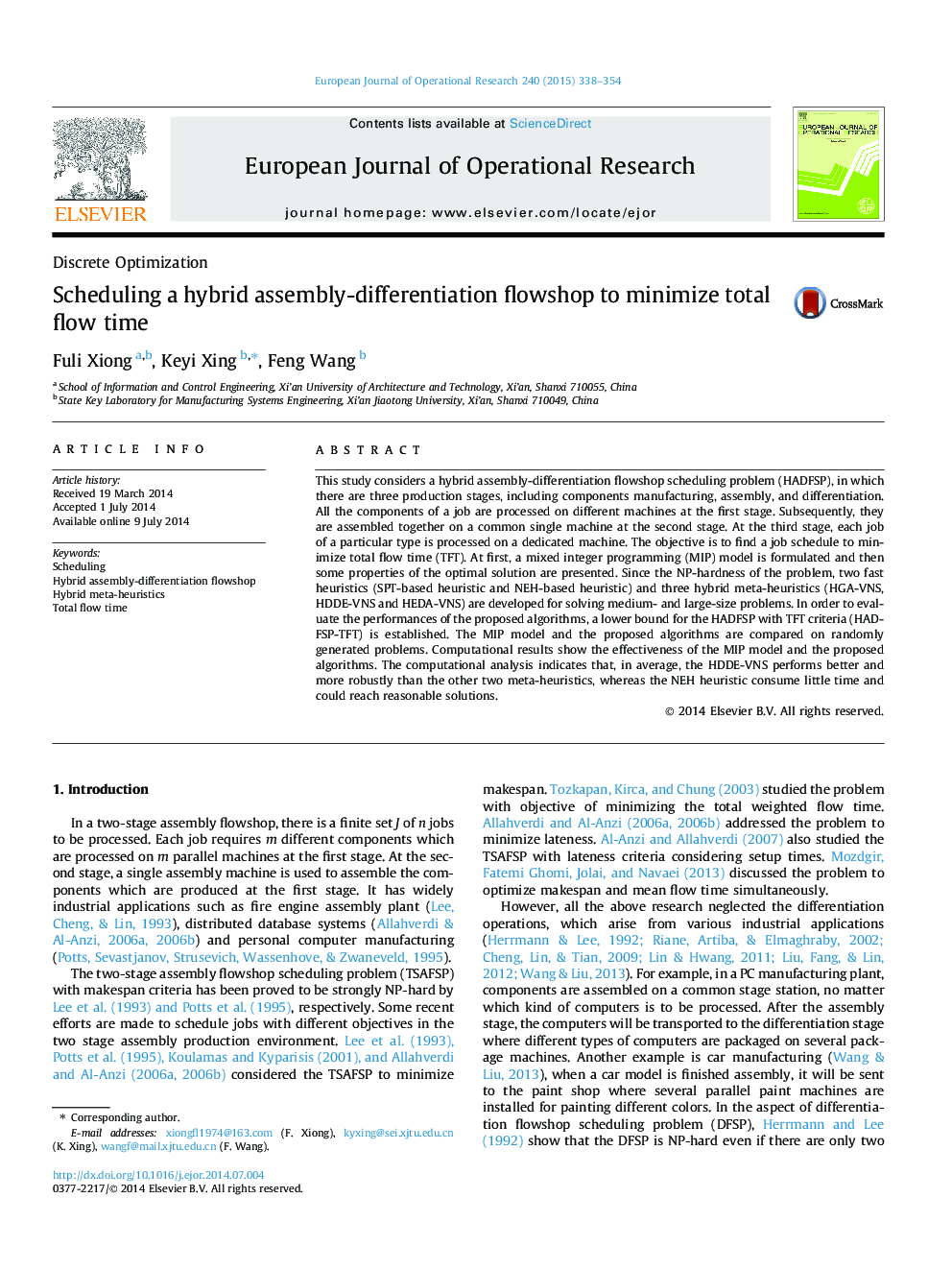| Article ID | Journal | Published Year | Pages | File Type |
|---|---|---|---|---|
| 479744 | European Journal of Operational Research | 2015 | 17 Pages |
•Hybrid assembly-differentiation flowshop scheduling problem with total flow time.•A mixed integer programming model for the HADFSP-TFT.•Some properties of the optimal solutions for the HADFSP-TFT.•Two fast heuristics and three hybrid meta-heuristics for the HADFSP-TFT.•A lower bound for the HADFSP-TFT to evaluate the proposed algorithms.
This study considers a hybrid assembly-differentiation flowshop scheduling problem (HADFSP), in which there are three production stages, including components manufacturing, assembly, and differentiation. All the components of a job are processed on different machines at the first stage. Subsequently, they are assembled together on a common single machine at the second stage. At the third stage, each job of a particular type is processed on a dedicated machine. The objective is to find a job schedule to minimize total flow time (TFT). At first, a mixed integer programming (MIP) model is formulated and then some properties of the optimal solution are presented. Since the NP-hardness of the problem, two fast heuristics (SPT-based heuristic and NEH-based heuristic) and three hybrid meta-heuristics (HGA-VNS, HDDE-VNS and HEDA-VNS) are developed for solving medium- and large-size problems. In order to evaluate the performances of the proposed algorithms, a lower bound for the HADFSP with TFT criteria (HADFSP-TFT) is established. The MIP model and the proposed algorithms are compared on randomly generated problems. Computational results show the effectiveness of the MIP model and the proposed algorithms. The computational analysis indicates that, in average, the HDDE-VNS performs better and more robustly than the other two meta-heuristics, whereas the NEH heuristic consume little time and could reach reasonable solutions.
